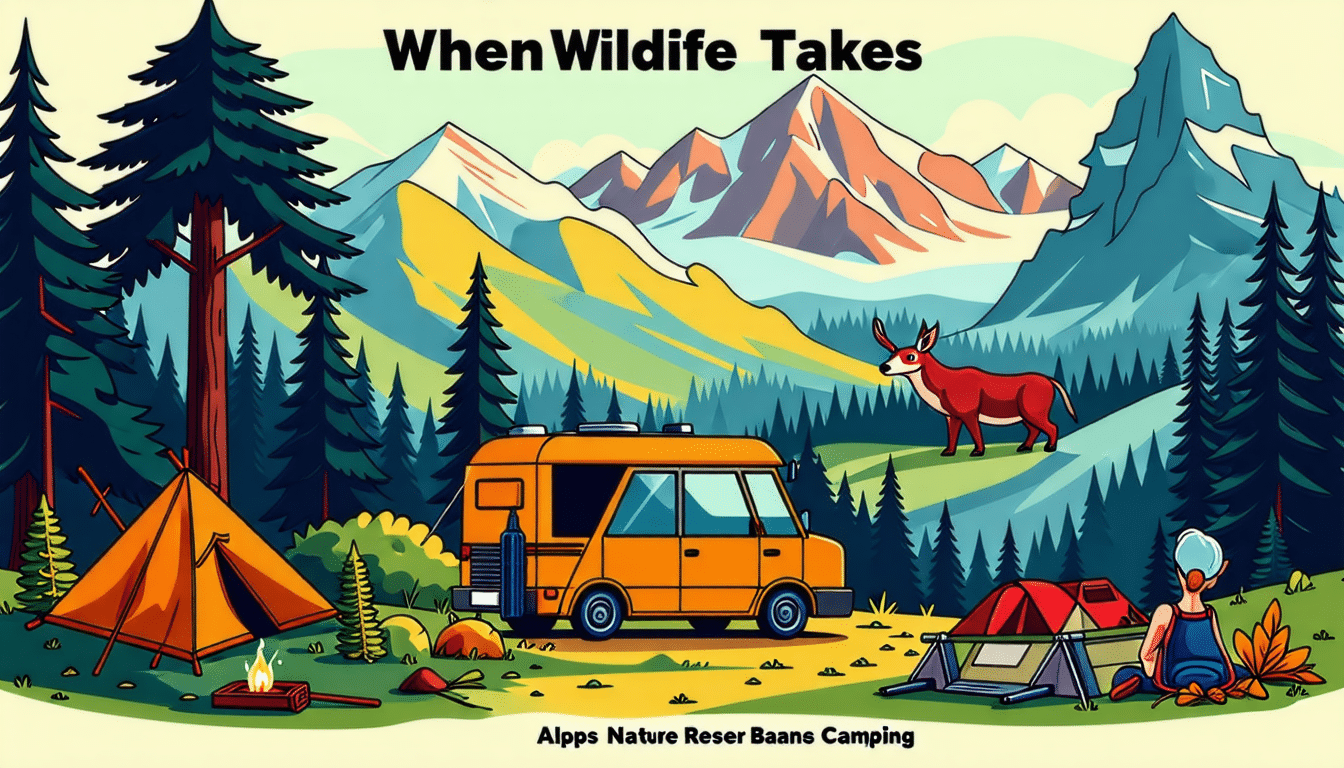Enter a world where nature reigns supreme, where the Alps display their wild and unspoilt splendor. Discover the Alps nature reserve, a biodiversity sanctuary where bivouac is prohibited. Let yourself be guided through these majestic mountains, where wildlife reclaims its rights.
Faced with the growing enthusiasm of hikers for the superb alpine landscapes, the Contamines-Montjoie nature reserve in Haute-Savoie has decided to take drastic measures to preserve its unique ecosystem. New regulations, which came into force in May, restrict certain practices in order to protect the biodiversity of this mountainous region.
A threatened natural gem
The high altitude lakes, torrents and mountain pastures of the reserve are home to exceptional flora and fauna. Iconic animals like ibexes and the chamois evolve in these fragile ecosystems. However, the ever-increasing influx of visitors, particularly bivouacs, is beginning to disrupt this delicate balance.
Restrictive measures to preserve nature
A prefectural decree has been published to limit certain human activities during specific periods. For example :
- THE bivouac is now prohibited from July 1 to August 31, 2024 in the Jovet lakes and Plan Jovet alpine areas.
- Swimming in the Jovet lakes, for hikers and their pets, is strictly prohibited all year round.
The challenges of uncontrolled bivouac
Geoffrey Garcel, technical ranger of the reserve, explains that bivouac involves a light and temporary camp where no trace must be left. However, the influx of 40 to 50 tents per evening around the Jovet lakes in summer poses many problems:
- Absence of sanitation systems and toilets.
- Trampling and degradation of alpine grasslands.
- Nocturnal and morning disturbances, impacting wildlife, particularly marmots.
The consequences of overcrowding
Between June and September, around 63,000 people take the Tour du Mont-Blanc route, with a peak attributed to the COVID-19 post-crisis. This overcrowding often leads to harmful behaviors such as:
- Use of lakes as refrigerators for beers.
- Doing your dishes and laundry in the lakes, disrupting their fragile balance.
- Deposits of Solar cream in the water, causing eutrophication and the appearance of algae.
The impact on wildlife
Marmots, once visible around Jovet Lakes at sunrise, have had to change their rhythm due to increased human presence. Evening and morning bivouacs disturb the animals, while repeated trampling damages alpine grasslands, leading to a loss of biodiversity.
A new reservation tool to supervise the bivouac
To face these challenges, an online reservation system has been put in place. Hikers must register and bivouac only in authorized sectors. In addition, waste collection points have been removed along the GR5 in order to make visitors more responsible, although collection locations remain available in certain areas.
These measures aim to reconcile hikers’ enthusiasm for the wonders of the Contamines-Montjoie nature reserve with the necessary respect and preservation of its precious ecosystem.









